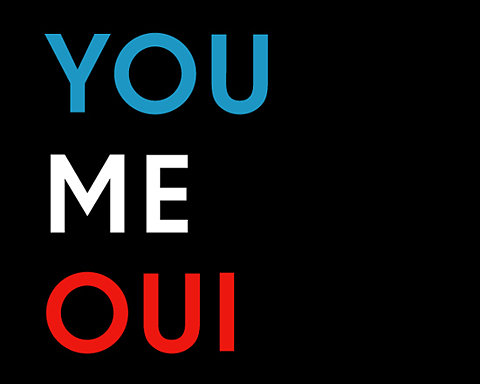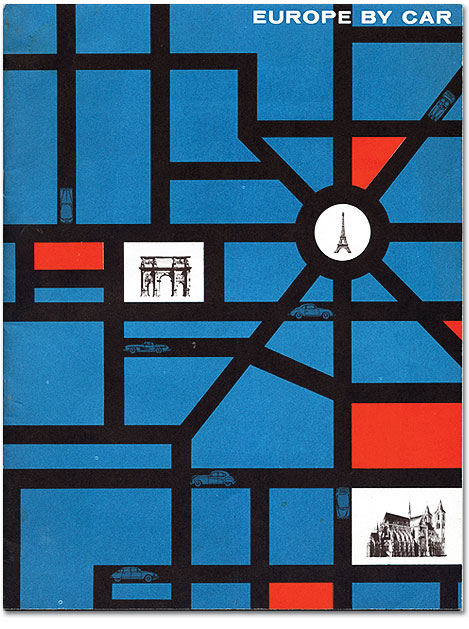
I’m quite a fan of Anthroplogie before any ruffles, but this just makes me fall a little harder.

I’m quite a fan of Anthroplogie before any ruffles, but this just makes me fall a little harder.
Alexandra Levit has just published the book, New Job, New You: A Guide to Reinventing Yourself in a Bright New Career, which is a great resource if you’re looking for a job or trying to find more happiness in your career. And it got me thinking, one of the myths I see over and over is that job-seekers or those looking to switch careers don’t think they have the skills or experience they need.
What a cop-out.
Of course, any career has a set of knowledge specific to that field. As an architect you probably have some technical knowledge about the size of a door jamb as well as general education about your specialization, like hospitals. But now that you’re ready to move to a new field, you don’t feel you have the gutzpah (experience, skills, knowledge) to apply to that journalism position or get into business development.
Very few employers are actually looking for someone with high level of expertise in a topic, but rather someone who can gain results. This is especially true the higher up the ladder you get. Look at the CEO of Yahoo Carol Bartz who originally came from the AutoCAD industry (architecture and design software).
As an unintentional job-hopper, the next job never hired me because of my body of field knowledge, but my track record of results which is a skill-set suitcase that travels with me and increases (one day, I hope it’s bursting open) to any job.
Those transferable skills are what’s most useful to employers: problem-solving skills, project management, marketing skills, business development, staff management, training and development; communication skills, etc. – and those are what should show up on your resume, how you should talk about yourself when networking, and what to include when writing your cover letter.
New Job, New You goes into great detail on these issues so definitely check it out for a motivating way to start the New Year. In the meantime, I’d love to hear from you:
Could you have any job you want? If not, what’s hindering you or holding you back? Do you have a skill-set suitcase? How do you define it?


I’m really adoring these delicate beauties. Aren’t they perfect for your every day?
$34, Tabula Rosa and $32 Amelia at Elephantine.
Cute little inspiration on how to push your ideas.
via BOOOOOOOM!

Please, I need this dress. And Spring. From H&M’s new Garden Collection to be released this Spring. Priced at a mere $20.
via Oh Joy!

Valentine’s Day is coming up! I’ve got some more cutesy posts coming up this week because I’ve personally never had a problem with a day celebrating love.
via Le Love.

This kind of reminds me of my mother’s favorite movie, Two for the Road with Audrey Hepburn and Albert Finney. Lovely, non?
via Grain Edit.
There are exceptions, okay. But very few bloggers can actually write. Bloggers pander to a crowd trying to satisfy the hive mind. Blogging is entertainment. Many bloggers are good at marketing, building community, relationships, and especially aggrandizing self-promotion, but not writing.
Crowdsourcing is a bloggers’ anthem. I remember my first blog. I deleted it. The posts didn’t get commented on and weren’t passed around. That wasn’t the point. But for bloggers, that is their mission; to create 500-word packages, bold-faced and headlined, read and digested in two minutes or less, bursting with lackadaisical opinion and junk epithets.
“Blogging is not writing,” the author of You Are Not a Gadget Jaron Lanier agrees. “It’s easy to be loved as a blogger. All you have to do is play to the crowd. Or flame the crowd to get attention. Nothing is wrong with either of those activities. What I think of as real writing, however, writing meant to last, is something else. It involves articulating a perspective that is not just reactive to yesterday’s moves in a conversation.”
Blogging is in its essence, not about originality, but about the aggregation, recycling and digesting of ideas. It is the darling of the open culture ideology of the web, where mediocre collaborations have produced a destructive new social contract, reports the New York Times.
“The basic idea of this contract,” Lanier argues, “is that authors, journalists, musicians and artists are encouraged to treat the fruits of their intellects and imaginations as fragments to be given without pay to the hive mind. Reciprocity takes the form of self-promotion. Culture is to become precisely nothing but advertising.”
We posit ourselves into believing that we’re taking down the establishment, but we’re only contributing to the dull masses, eager for mega numbers of comments, subscribers, fans and followers, and other easily influenced analytics. In an age where anyone can be famous with the push of “Publish,” we have lost the creation of enduring legacies that enthuse, provoke and delight.
Bloggers are not writers, nor are they press, or superior to old media. Where disintermediation in the media shines, where a cadre of reporters has eliminated the need for a specific background (say, a degree in journalism or the need to pay dues at the right newspapers), is not evidence of bloggers taking over the world, but rather that the term blogger is now so broad that its definition no longer suits the myriad stacks of people and posts underneath.
Take a journalist for the Wall Street Journal, a reporter for the Huffington Post, a novelist, a Mashable blogger and a Gen Yer typing about their quarter-life crisis. They are not the same, nor equal, and certainly not held to the same standards or expectations. They are, despite the fact that we’d like to give little credence to the notion, entirely different.
“It’s as if culture froze just before it became digitally open, and all we can do now is mine the past like salvagers picking over a garbage dump,” Lanier writes. “Creative people — the new peasants — come to resemble animals converging on shrinking oases of old media in a depleted desert.”
Blogging is entertainment. Maybe it didn’t use to be. Maybe when bloggers were first getting started, it was about thought and connection. But increasingly, it bows to the “appeal of a new online collectivism that is nothing less than a resurgence of the idea that the collective is all-wise.”
Writing is something more. And it is in the reading of such writing that enduring ideas, observations and philosophies satiate what we spend hours a day trying to glean from skimming any number of blog posts.
There is nothing wrong with blogging. But let’s give credit where it’s due – to the true writers, journalists, novelists, reporters, columnists, and others who inspire us to boil their ideas down in an effort to hold onto them just a little longer.